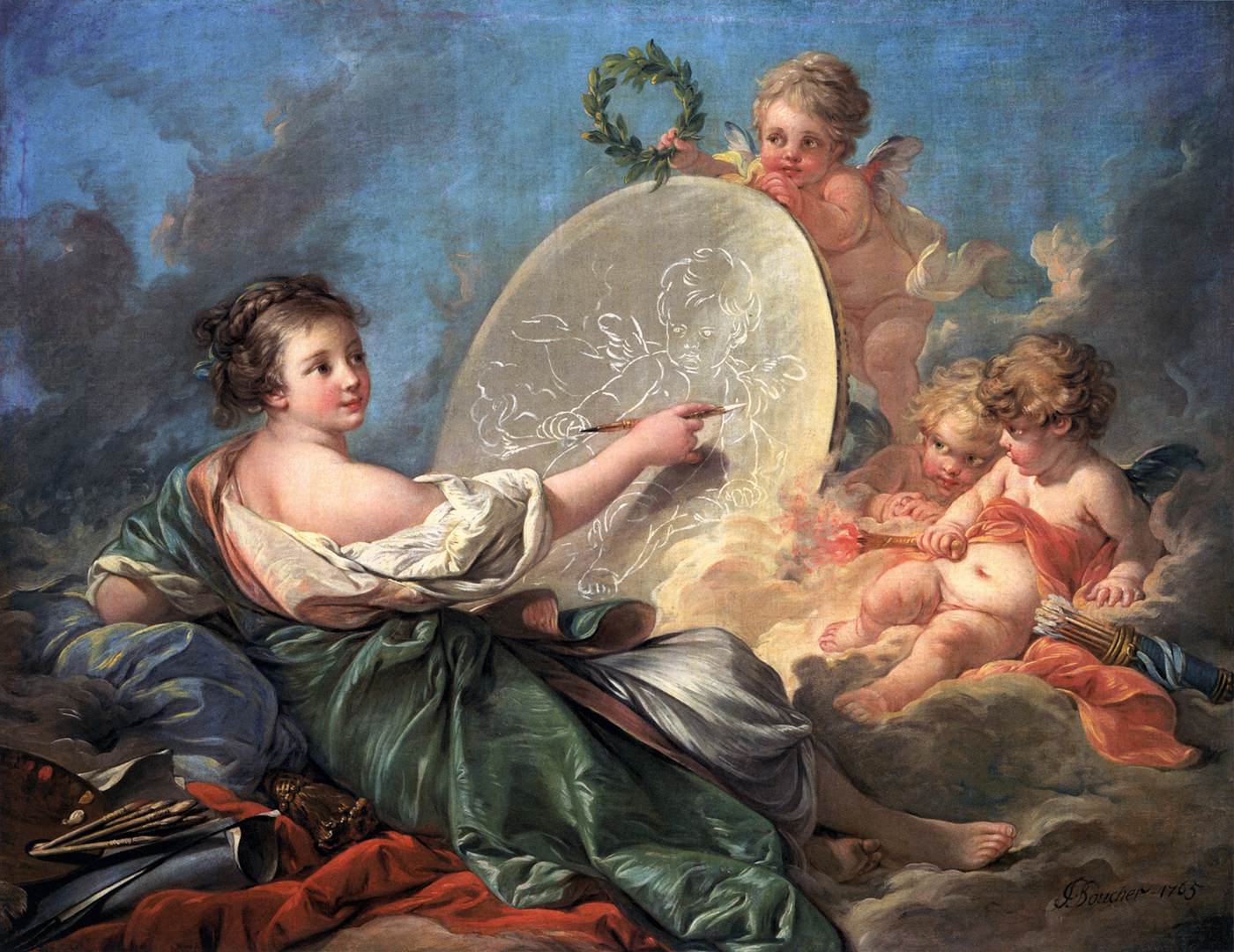Description
François Boucher's Allegory of Painting is a masterpiece of French Rococo, noted for its elegance, sensuality and refinement. The work, with an original size of 102 x 130 cm, was painted in 1765 and represents a muse of painting, Clio, surrounded by instruments and symbols of her art.
The composition of the painting is very balanced and harmonious, with a symmetrical arrangement of the elements and great attention to detail. The figure of Clio, with her flowing dress and her elegant pose, is the center of attention of the work, while the painting instruments, such as the easel, the brush and the palette, are distributed in an orderly manner around her.
The coloring of the painting is very delicate and soft, with pastel tones and skilful use of light and shadow to create effects of depth and volume. Boucher's palette is very refined and elegant, with soft shades of pink, blue, yellow and green blending harmoniously in the work.
The history of the painting is interesting, as it was commissioned by the French Royal Academy of Painting and Sculpture to decorate its meeting room. The work was very well received by critics and the general public, becoming one of the most famous works of Boucher and of the French Rococo in general.
Little-known aspects of the painting include the fact that Boucher used his wife as a model for the figure of Clio, and that the work has been interpreted as an allegory for creativity and artistic inspiration, as well as the importance of education and culture in society.
In short, François Boucher's Allegory of Painting is a masterpiece of French Rococo, noted for its elegance, sensuality and refinement. Its balanced composition, soft coloring, and interesting history make it one of the most important works of its time and a leading example of 18th-century French art.

